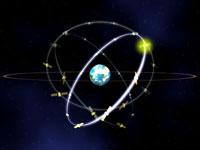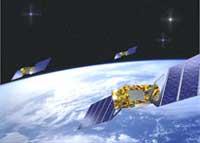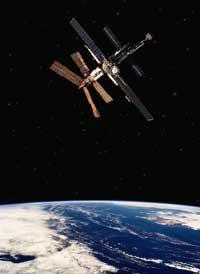Galileo, in a bad moment
2007/12/09 Lakar Iraizoz, Oihane - Elhuyar Zientzia

In fact, GPS words are the acronym for the satellite positioning system created by the United States Department of Defense (Global Positioning System). And most GPS devices used worldwide receive signals from this system. Until 2000, for security reasons, the US Department of Defense manipulated satellite positions and collected position data with a few meters of error from users. In 2000 this error was eliminated, but if at some point the United States decided to reestablish it, we would return to the previous situation.
To free itself from this dependence, the European Union has among its projects the creation of its own satellite positioning system: Galileo. There is a project, but problems accumulate to make it a reality, one after the other.
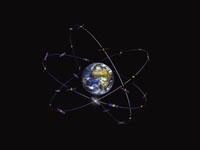
Ambitious project
During the design of the project several forecasts were made: having a network of thirty satellites, providing more accurate data than the GPS system – that the fault distance is less than one metre –, being operational by the year 2010, with an approximate cost of 3.400 million euros.
The commitment to carry out this project was assumed, in addition to by the European Union, by the ESA (European Space Agency) and by aerospace and private telecommunications companies. It also began to talk about how to distribute all the expenses of the project, both the manufacture and launch of satellites, and the maintenance during their stay in space, as well as the stations receiving signals emitted by satellites on Earth, to agree on the part that the European Union would pay and the private part. But they agreed nothing clear.
And they started the project. 28 December 2005 (Innocent Day), was it a sign? ), first satellite launch: Giove-A. It was sent as a test to know the technology needed by the other satellites.
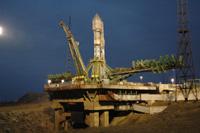
The first was sent on time, but from there the project was paralyzed. And so it continues two years after that release. Today, another satellite should be in orbit and, for the moment, have not launched it due to technical problems. Furthermore, Galileo has only promised to make four of the thirty satellites he claims to have.
In addition to technical problems, they have economic problems. The companies that make up the private sector have not managed to agree on a joint negotiation offer, so what was initially agreed could not move forward. That is, the part that the private sector must pay has been left without a payer.
However, the European Union wants to move forward with the project at all costs and has announced that it will assume the payment of what is paid and that it will only give the private sector the responsibility to keep the satellites running. To do this, they will use the agricultural and administrative funds left unused.
Not all EU countries agree with this. They say it is crazy to squander in that amount of taxes paid by citizens, who should use it to make other works more useful. Some say that ESA should also put money and others ask for Galileo's suspension until the payment problem is solved. Who knows how the Galileo project will end!
Published in 7K.

Gai honi buruzko eduki gehiago
Elhuyarrek garatutako teknologia




